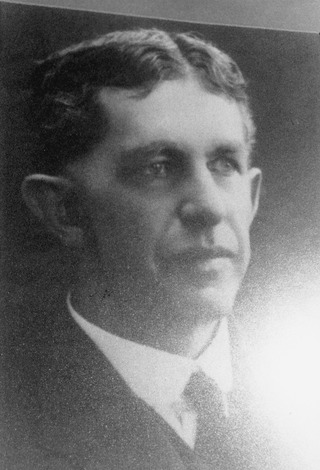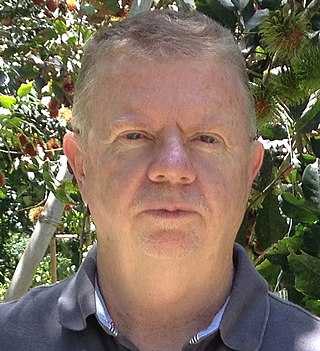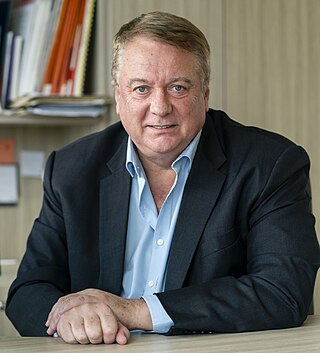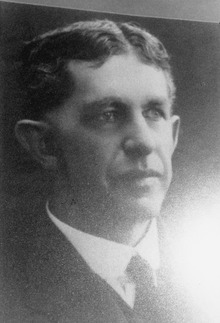
James Cook University (JCU) is a public university in North Queensland, Australia. The second oldest university in Queensland, JCU is a teaching and research institution. The university's main campuses are located in the tropical cities of Cairns and Townsville, and one in the city state of Singapore. JCU also has study centres in Mount Isa, Mackay, Thursday Island and Rockhampton. A Brisbane campus, operated by Russo Higher Education, delivers undergraduate and postgraduate courses to international students. The university's main fields of research include environmental sciences, biological sciences, mathematical sciences, earth sciences, agricultural and veterinary sciences, technology and medical and health sciences.

Melioidosis is an infectious disease caused by a gram-negative bacterium called Burkholderia pseudomallei. Most people exposed to B. pseudomallei experience no symptoms; however, those who do experience symptoms have signs and symptoms that range from mild, such as fever and skin changes, to severe with pneumonia, abscesses, and septic shock that could cause death. Approximately 10% of people with melioidosis develop symptoms that last longer than two months, termed "chronic melioidosis".

The Medical Research Council (MRC) is responsible for co-coordinating and funding medical research in the United Kingdom. It is part of United Kingdom Research and Innovation (UKRI), which came into operation 1 April 2018, and brings together the UK's seven research councils, Innovate UK and Research England. UK Research and Innovation is answerable to, although politically independent from, the Department for Business, Energy and Industrial Strategy.

The Liverpool School of Tropical Medicine (LSTM) is a higher education institution with degree awarding powers and registered charity located in Liverpool, United Kingdom. Established in 1898, it was the first institution in the world dedicated to research and teaching in tropical medicine. The school has a research portfolio of over £220 million, assisted by funding from organisations such as the Bill & Melinda Gates Foundation, Wellcome Trust and Department for International Development (DFID).

Tropical medicine is an interdisciplinary branch of medicine that deals with health issues that occur uniquely, are more widespread, or are more difficult to control in tropical and subtropical regions.

James Cook University Singapore is a branch of James Cook University, based in Townsville, Australia. In addition to Singapore and Townsville, JCU operates another campus in Cairns, Australia. JCU Singapore was opened in 2003 as part of the university's strategic intent of "Creating a brighter future for life in the tropics world-wide through graduates and discoveries that make a difference". The university is ranked in the top 2%* of universities in the world and is the leading tropical research university in Australia. JCU Singapore fully adapts the Australian curriculum and all degree certification is awarded from James Cook University Australia. JCU is registered under the Committee for Private Education Singapore (CPE).

The Institute of Medical Science is an ancillary establishment of Tokyo University. It succeeded the Institute of Infectious Diseases established in 1892 and is the foremost institute for medical and bioscience research in Japan.
The Australasian College of Tropical Medicine, more commonly known by its acronym ACTM is an Australasian medical association founded by 10 interested clinicians, scientists and researchers at the Anton Breinl Centre in Townsville, Australia on 29 May 1991. The ACTM is a preeminent professional organisation in tropical medicine in the Australasian region and claims to have more than 800 fellows and members worldwide. The ACTM is committed to the development of tropical medicine and is working with professionals to help manage the global burden of tropical disease and injury through networking, research and development. The ACTM Secretriat is based at AMA House, Brisbane.

The Anton Breinl Centre for Public Health and Tropical Medicine is a constituent discipline of the School of Public Health, Tropical Medicine and Rehabilitation Sciences at James Cook University in Queensland, Australia. It specialises in public health and tropical medicine. The Anton Breinl Centre is one of only eight internationally recognised centres of excellence in tropical medicine worldwide and one of two in the Asia-Pacific Region. The Anton Breinl Centre incorporates a World Health Organization (WHO) Collaborating Centre (CC) for the Elimination of Lymphatic Filariasis and Soil Transmitted Helminthiases. It also incorporates a World Safety Organization Collaborating Centre, which has several designations, including Disaster Health and Emergency Response, Injury Prevention and Occupational Health and Travel Safety and Health.

Australian Institute of Tropical Medicine Building is a heritage-listed laboratory at Clifton Street, Townsville CBD, City of Townsville, Queensland, Australia. It was built from c. 1912 to 1913. It is also known as Anton Breinl Centre and James Cook University Department of Public Health and Tropical Medicine Building. It was added to the Queensland Heritage Register on 21 October 1992.

Anton Breinl was a medical practitioner and medical researcher, who established the Australian Institute of Tropical Medicine in Townsville, Queensland, Australia.

Jan Maree Strugnell is an Australian evolutionary molecular biologist. She is a professor and director in the Centre for Sustainable Tropical Fisheries and Aquaculture at James Cook University, Townsville, Australia. Strugnell's work has investigated population and species level molecular evolution in Antarctic and deep sea species in the context of past geological and climatic change. Strugnell's work also uses genetic tools to help solve bottlenecks in aquaculture and fisheries industries.

Richard "Rick" Speare was an Australian public health physician and veterinary surgeon. He is best known for his research on animal diseases, particularly his work on chytridiomycosis in amphibians.
Sharon Jayne Peacock is a British microbiologist who is Professor of Public Health and Microbiology in the Department of Medicine at the University of Cambridge.

Paul J Brindley is an Australian parasitologist, microbiologist, and helminthologist. He is professor of Microbiology, Immunology, and Tropical Medicine at the George Washington University.

Gerald T. Keusch is an American physician-scientist and academic administrator. Keusch is the associate provost for global health at Boston University Medical Campus and a professor of international health and medicine at Boston University School of Public Health. He was the director of John E. Fogarty International Center and the associate director of international research at the National Institutes of Health from 1998 to 2003.

Dale Andrew Fisher FRACP is an Australian physician who specialises in Infectious Diseases and is a Senior Consultant in the Division of Infectious Diseases at the National University Hospital, Singapore. He is also a professor of medicine at the Yong Loo Lin School of Medicine, National University of Singapore, the chair of the National Infection Prevention and Control Committee through the Ministry of Health, Singapore, and chair of the steering committee of the Global Outbreak Alert and Response Network hosted by the World Health Organization.
Joseph Michael Vinetz is a Professor of Medicine and Anthropology at Yale University, Research Professor at the Universidad Peruana Cayetano Heredia and Associate Investigator of the Alexander von Humboldt Institute of Tropical Medicine at the Universidad Peruana Cayetano Heredia.

David Hayman is a New Zealand-based epizootic epidemiologist and disease ecologist whose general multi-disciplinary work focuses on the maintenance of infectious diseases within their hosts and the process of emergence and transmission to humans specifically related to bats. He has gathered data on the relationship between ecological degradation due to anthropogenic actions, and increased pathogen emergence in humans and animals. During COVID-19 he was involved as an expert in several international collaborations, some convened by the World Health Organization, and was a regular commentator in the New Zealand media about the country's response to the pandemic. He has had lead roles in research organisations at Massey University and Te Pūnaha Matatini and was the recipient of the 2017 Rutherford Discovery Fellowship Award. Since 2014 Hayman has been a professor at Massey University.
Associate Professor Asha Bowen is an Australian Paediatric Infectious Diseases clinician-scientist and a leading voice and advocate for children's health and well-being. She is Head of the Department of Infectious Diseases at Perth Children's Hospital, Head of the Healthy Skin and ARF Prevention team and Program Head of the End Rheumatic Heart Disease program at the Telethon Kids Institute. Bowen leads a large body of skin health research in partnership with healthcare workers and community in the Kimberley while expanding her team and work to understand skin health in urban Aboriginal children better. She has been widely acknowledged and awarded for her contributions towards improving the health and well-being of Australian children, and addressing existing health inequities faced by First Nations Australian children and their families. Throughout the COVID-19 pandemic she contributed her knowledge and expertise to clinical research, guideline development and on several national committees. She has published widely in the area of paediatric infectious diseases and is a recognized expert in the field who regularly contributes to popular Australian media sources such as The Conversation.















